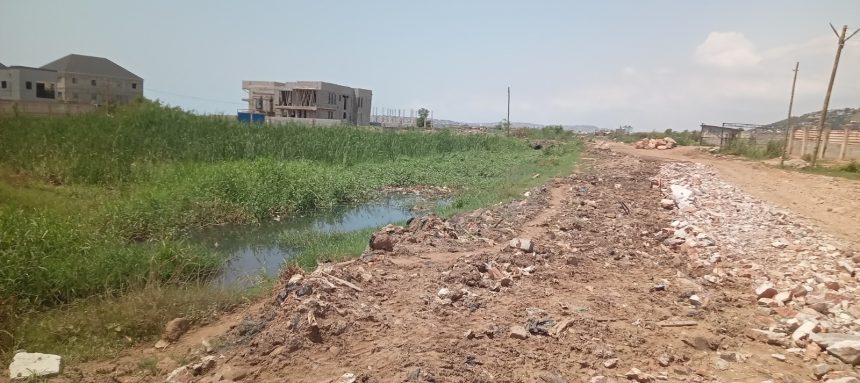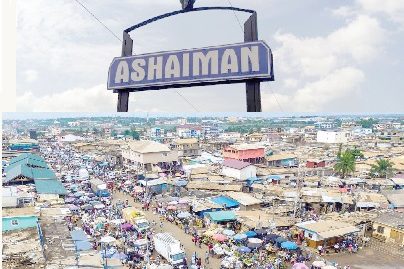They build on the lagoon’s bones and call it progress. In Dansoman, where waste fills the space water once claimed, the struggle between survival and sustainability reveals the cost of forgetting how cities breathe.
At the edge of Dansoman Ave Maria, the road gives way to what was once a breathing wetland. The asphalt stops, and the earth begins to tremble, soft, uneven, uncertain of what it now is. A thin green veil stretches across the lagoon, an imitation of life. Beneath it, the water is still, heavy with waste.
We arrived early, before the heat could thicken. The place was neither land nor water but something abandoned between the two. A few mangroves stood like witnesses, their roots reaching into silence. Around them, refuse floated where fish once darted. Children played beside open drains, their laughter too bright for the landscape it echoed through.
Yet among the stench and stillness, a new order was rising: pillars of cement, fences of ambition. Here, the bourgeoisie of the wetland stake their claim. They are not the elite of gated enclaves, but a quieter class, landlords of reclamation and merchants of marginal soil, dreamers of homeownership on borrowed land. They measure progress in blocks and rooftops, not in the unseen labor of ecosystems.
It would be simple to condemn them, but their hands are guided by necessity. The city has priced them out, and the wetland offers what the law refuses, a place to build, to belong, to breathe. Survival here wears the face of defiance. The more the lagoon resists, the more it is forced to surrender.
Still, there is complicity in this quiet conquest. Each structure that rises on the marsh rewrites the memory of the place. What was once a cradle of life becomes an emblem of aspiration. The very people who suffer flooding each season now seal the wetland’s lungs with sand and concrete, convinced they are escaping poverty when they are, in truth, building within its belly.
The irony is cruel and familiar. Accra’s expansion feeds on its own fragility. The wetland absorbs what the city expels: waste, water, and people alike. But it can only do so for so long before it turns against its feeders. When the floods come, they will not distinguish between the powerful and the desperate.
Standing by the lagoon, I watched the water glimmer under a faint sun, pretending stillness was peace. It was not. It was exhaustion. The heron that rose from the sludge seemed to carry away what little dignity remained in the scene.
We speak of development as if it were salvation, yet it often feels more like amnesia. The wetland is dying, not from malice but from the simple arithmetic of survival. A city that cannot manage its waste or house its people will eventually consume its own lungs.
As I left, a Latin phrase drifted to mind: ubi solitudinem faciunt, pacem appellant — they make a desert and call it peace. The bourgeoisie of the wetland have not made peace; they have only mistaken silence for it.






